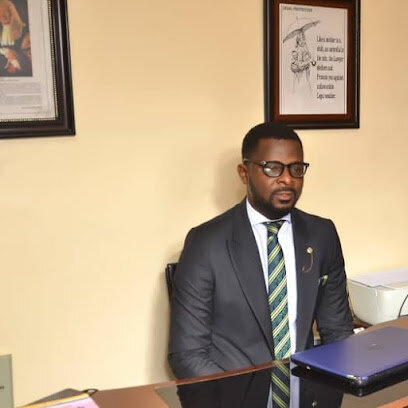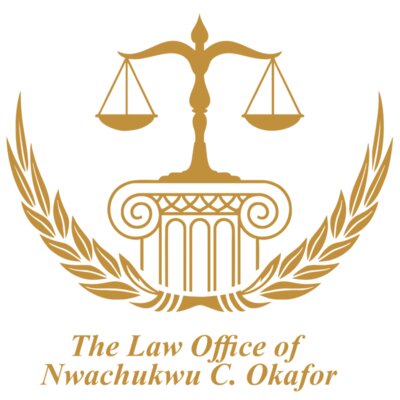About Admiralty & Maritime Law in Nigeria
Admiralty & Maritime Law in Nigeria governs legal matters related to shipping, navigation, waters, and commerce via sea. Due to Nigeria's strategic location along the Atlantic Ocean and its significant ports, maritime activities play a crucial role in the country’s economy. This legal domain addresses issues such as shipping contracts, marine navigation, maritime injuries, and other oceanic activities, ensuring smooth operations and upholding maritime regulations.
Why You May Need a Lawyer
There are various situations where individuals or companies might require legal expertise in Admiralty & Maritime Law:
- Disputes arising from shipping contracts or charter agreements.
- Injuries sustained by maritime workers or passengers at sea.
- Cases of cargo loss, damage, or insurance claims related to maritime activities.
- Environmental concerns, such as oil spills and marine pollution.
- Registration, ownership, and financial issues concerning vessels.
- Legal compliance with local and international maritime laws.
Local Laws Overview
Nigeria’s maritime activities are primarily governed by the Nigerian Maritime Administration and Safety Agency (NIMASA) and the Merchant Shipping Act. Key aspects include:
- Regulations on ship registration and operations under the Nigerian flag.
- Maritime safety and security measures to protect lives and properties.
- Environmental regulations focusing on the prevention of marine pollution.
- Frameworks for resolving maritime disputes through Admiralty Courts.
- Provisions for cabotage laws ensuring that coastal trade is conducted by Nigerian vessels.
Frequently Asked Questions
What is Admiralty & Maritime Law?
Admiralty & Maritime Law is a specialized field dealing with legal issues related to the sea, including shipping, navigation, commerce, marine navigation, and the transportation of goods and passengers.
What is NIMASA's role in Nigeria?
The Nigerian Maritime Administration and Safety Agency (NIMASA) is responsible for regulating shipping activities, ensuring maritime safety, and implementing policies to promote the shipping industry in Nigeria.
Who can practice Admiralty & Maritime Law in Nigeria?
Lawyers with specialized training or experience in maritime law and who are members of the Nigerian Bar Association can practice in this field.
How can Admiralty & Maritime Law affect my business?
If your business involves shipping, import/export, fishing, or involves activities on Nigerian waters, you must comply with maritime laws. Legal guidance can help navigate complex regulations and prevent disputes.
What should I consider when hiring a maritime lawyer?
Look for experience in maritime law, membership in relevant professional bodies, a strong track record in similar cases, and an understanding of both local and international maritime legislation.
Are there specific laws regarding ship mortgages in Nigeria?
Yes, the Merchant Shipping Act provides regulations concerning ship mortgages, outlining the rights of lenders and borrowers, as well as foreclosure procedures.
How are maritime disputes resolved in Nigeria?
Maritime disputes may be resolved through litigation in Admiralty Courts or alternative dispute resolution methods like arbitration and mediation.
What are cabotage laws?
Cabotage laws restrict the operation of foreign vessels in domestic coastal trade to protect local shipping interests and promote the development of the indigenous maritime industry.
How does international law interact with Nigerian maritime law?
Nigerian maritime law often incorporates international conventions and treaties, such as SOLAS and MARPOL, into domestic legislation to ensure compliance with global standards.
What are the penalties for non-compliance with maritime regulations?
Penalties can include fines, revocation of licenses, detention of vessels, and legal action for damages, depending on the violation’s severity and nature.
Additional Resources
The following resources can be useful for individuals seeking more information:
- Nigerian Maritime Administration and Safety Agency (NIMASA)
- The Nigerian Bar Association's Maritime Law Committee
- International Maritime Organization (IMO)
- Local maritime consultancy firms and law practices specializing in Admiralty law
- The Merchant Shipping Act documentation
Next Steps
If you require legal assistance in Admiralty & Maritime matters, consider the following steps:
- Consult with a specialized maritime lawyer to understand your legal position.
- Prepare documentation relevant to your case or legal concern.
- Engage with professional organizations such as the Nigerian Bar Association for referrals.
- Explore alternative dispute resolution methods if applicable.
- Stay informed about local and international maritime regulations that may affect your situation.
Lawzana helps you find the best lawyers and law firms in Nigeria through a curated and pre-screened list of qualified legal professionals. Our platform offers rankings and detailed profiles of attorneys and law firms, allowing you to compare based on practice areas, including Admiralty & Maritime, experience, and client feedback.
Each profile includes a description of the firm's areas of practice, client reviews, team members and partners, year of establishment, spoken languages, office locations, contact information, social media presence, and any published articles or resources. Most firms on our platform speak English and are experienced in both local and international legal matters.
Get a quote from top-rated law firms in Nigeria — quickly, securely, and without unnecessary hassle.
Disclaimer:
The information provided on this page is for general informational purposes only and does not constitute legal advice. While we strive to ensure the accuracy and relevance of the content, legal information may change over time, and interpretations of the law can vary. You should always consult with a qualified legal professional for advice specific to your situation.
We disclaim all liability for actions taken or not taken based on the content of this page. If you believe any information is incorrect or outdated, please contact us, and we will review and update it where appropriate.

















